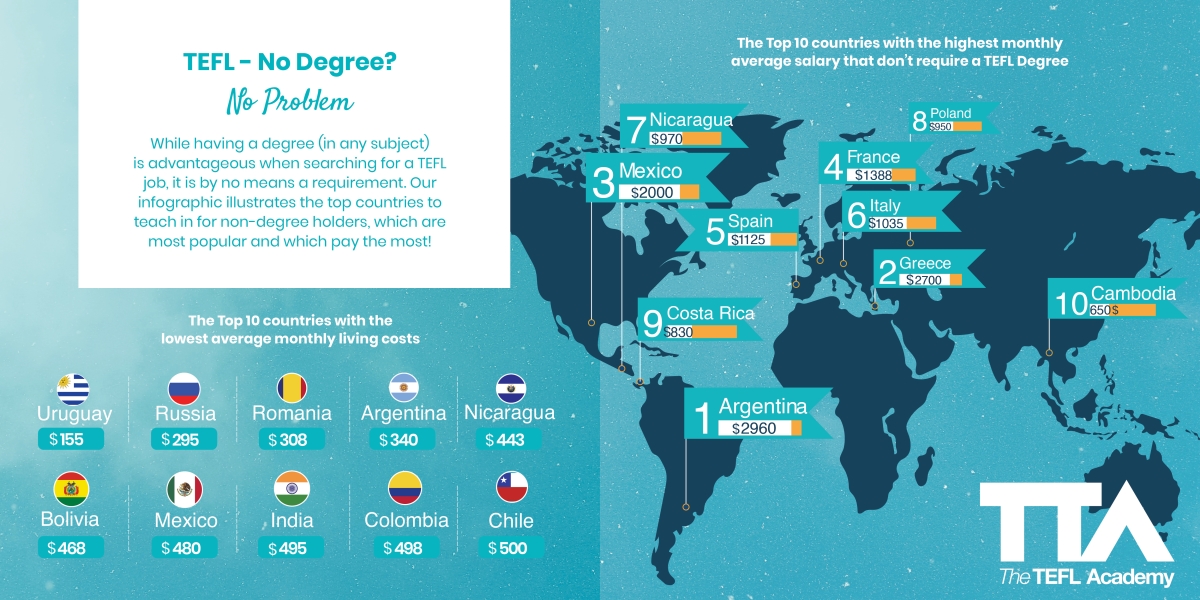With the world is such a state of flux at the moment thanks to the Covid 19 pandemic and to a lesser extent, Brexit, the job market is unstable, at best. If you work in the retail industry your job is under threat, same with the catering industry and same with the industries that rely on face-to-face contact, like driving instructors for example.
Jobs have been lost, families are down to just one wage and in lots of cases childcare makes it impossible to go to work now that the schools have been shut. The market is widening for online teaching roles and people are turning more and more to the internet as the only place where they can guarantee uninterrupted study. All of which is good news for TEFL teachers.
There are two billion people across the globe who speak English which drives the demand for teachers and puts you in a strong position to join the TEFL world. But as with most jobs you can’t just jump in feet first without some preparation, even if you’re an experienced teacher. And especially so if you’re planning to go abroad and teach, so here are some tips to help you prepare and be inspired.
What course should I take?
This is where your research skills will come in handy. First of all, decide on the length and type of course that you want to do, bearing in mind that the more hours you invest in training, the stronger your CV will be. The TEFL Academy have courses ranging from just 20 hours up to 198 hours, but we recommend doing a minimum of 120 hours because this is the entry level that most employers will require you to have and furnishing yourself with more skills and knowledge will make you more attractive to employers and maybe put you ahead of the crowd.
As for the type of course, that depends on whether you have solid previous experience, if you want to work from home and if you want to do it entirely online. For those just starting out it’s generally a good idea to have a classroom element to the course because practical and hands-on learning are valuable skills to have.
Accreditation.
Make sure that you choose a course with a reputable, established company and one that is recognised by accrediting bodies. There will be some courses out there that seem to have a huge discount (those available through Groupon, for example) but there’s a reason for such a low price. Firstly, it’s probably not recognised by any awarding bodies which makes the qualification next to useless, and secondly there are often hidden costs with budget TEFL course providers, paying a large lump sum at the end of the course just to get your certificate, for example. It’s definitely worth investing in a course run by a proper and reputable company.
Visa requirements.
These are not the same in every country so make sure you scope out what’s needed for a visa in the country that you’re intending to go to and do it before you apply. Having your TEFL qualification is a must for any decent teaching position abroad, but there are also a host of other factors that go into the decision as to whether or not you’ll be awarded a working visa.
Do I need a degree?
Not necessarily is the short answer. It’s not needed for your TEFL certification, but there are lots of countries abroad that want a BA degree or above for teaching roles – Asia, South America and the Middle East mainly. But don’t worry too much if you don’t have a degree, there are still countries where you’ll be able to teach.
To help out, see this infographic detailing the best countries that you can teach in without the requirement of a degree (as well as other useful information!)

Career opportunities.
Lots of people makes the mistake of assuming that EFL teachers are all young graduates who want to work whilst they travel the world, a sort of working holiday. But this is definitely not the case. You can make a good career out of TEFL and there are progression prospects – with professional development and experience of teaching under your belt, you can easily work your way up to senior roles.
Where can I teach?
All of our certificates are recognised internationally so you can travel and work across the world. You can work abroad, in the UK or online. Freelance work is a good bet if you want to control your own hours and need flexibility, for childcare, for example. The online teaching industry is a booming one, it’s expanding rapidly due to demand, so more and more positions are becoming available. But bear in mind that there will be fierce competition online so make your CV as strong as possible.
What can I earn?
It’s a pivotal question and one to which there is no definitive answer. There isn’t a salary bracket within which all teachers fall, it depends on a number of factors. Like which country you’re in, for example. Some are poorly paid – but you’ll save money on living costs – and some are better paid but living costs will be higher. The biggest salaries are typically found in South Korea, China, Vietnam and Japan.

Salaries also vary depending on what kind of establishment you’re teaching in. International and private schools will probably pay higher than Universities and language centres.
Experience is another crucial factor in what you can expect to be paid, the more you have the more you’ll earn. Further teaching qualifications will also boost your earning power, PGDE for example.
Age restrictions.
There’s nothing official to say what ages can and can’t teach, but some countries will have their own rules and don’t look favourably on older teachers. In Asian countries the compulsory retirement age is 60 so eligibility might be a problem there if you’re approaching 60. Likewise, you can enrol for an TEFL certificate at 16, but paid employment only really becomes a possibility once you hit 18. It’s a good idea to volunteer and gain as much experience as you can, then when it comes to applying for teaching posts, you’ll be able to hit the ground running.
Scam employers – watch out for them.
The vast majority of jobs advertised are from legitimate employers, but there’s a small percentage that aren’t and the scams are out there to exploit teachers who are new to the profession and eager to start earning. Become familiar with the tell-tale signs of scam employers and keep them in mind during the whole application process. If something feels a bit off, then walk away – your instincts are usually right.


